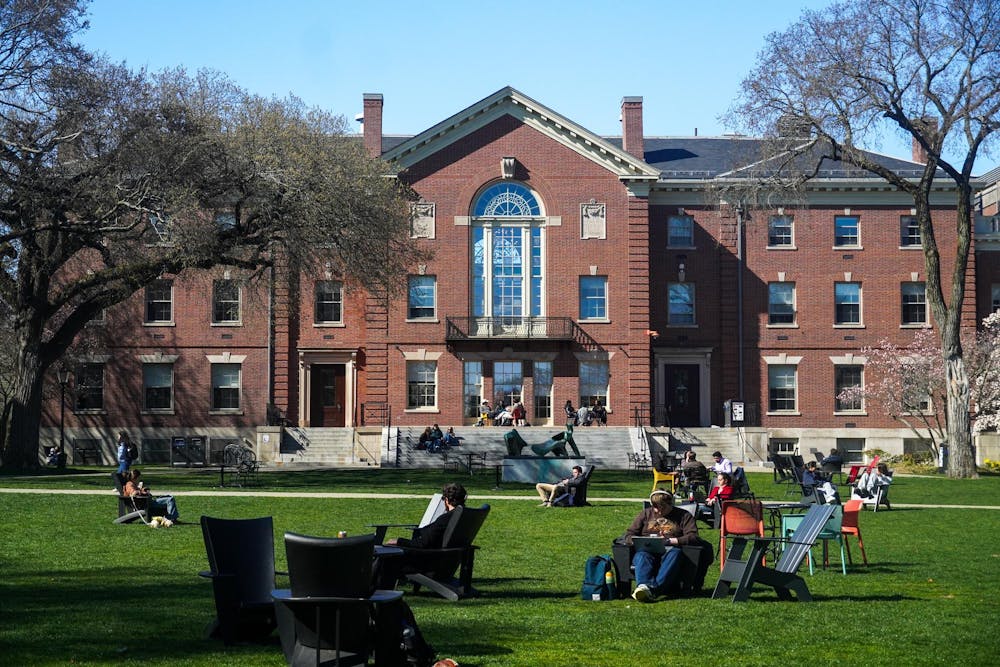Although the Editorial Page Board is divided on the issue of divestment of Brown’s endowment from companies affiliated with Israel, we agree on this: Detaining a student for writing an op-ed is a grave violation of free speech and due process. It is antithetical to the values of a democratic society. It is unconstitutional. And it is happening now.
On March 25, Rumeysa Ozturk, a Turkish doctoral student at Tufts University, was detained by the Department of Homeland Security outside her Somerville apartment. Her student visa was revoked due to vague and unsupported allegations that she “engaged in activities in support of” Hamas. Currently, the only basis for these allegations seems to be an op-ed Ozturk co-authored, calling on Tufts to divest from Israel. The op-ed does not mention Hamas a single time, yet this alone was enough for her to be detained.
This is not immigration enforcement. This is political repression.
Ozturk’s case is part of a broader escalation by the Trump administration to silence dissent on college campuses through fear and state power. From defunding universities to intimidating faculty, and now to deporting students for constitutionally protected speech, the message is clear: Dissent is disloyalty, and disloyalty has consequences.
We commend Tufts for defending Ozturk and demanding her release. As the Tufts’ president, Sunil Kumar, made clear in a public statement, she is in good academic standing and should be allowed to continue her studies. However, this moment demands more than individual acts of support. It demands a full-throated defense of the principle that no one should be detained — let alone deported — for exercising their right to free speech.
The American Civil Liberties Union, which has filed suit on Ozturk’s behalf, has rightly argued that her detention is unconstitutional. The U.S. Constitution protects not only citizens but all persons within its borders — including those on student visas. The First Amendment broadly guarantees freedom of speech without regard to immigration status, and the Fifth Amendment protects against the deprivation of liberty without due process of law.
Courts have consistently upheld that visa holders, like Ozturk, are entitled to these fundamental rights. The notion that expressing a peaceful political opinion could justify arbitrary detention and deportation runs counter to both legal precedent and the values this country claims to uphold.
The chilling effect is already here. Faculty members are choosing silence over nuance. Administrators are caught between moral clarity and institutional preservation. And international students now face the terrifying prospect that any political expression could put them at risk.
This is not just about Ozturk. This is about what kind of university and what kind of country we want to be. Free speech should not be a partisan issue. It is a foundational one. The erosion of that right, especially under the pressure of federal coercion, must be met with resistance. Academic and journalistic freedom are not luxuries. They are cornerstones of intellectual inquiry. Without them, our institutions lose their purpose and our democracy loses its depth.
This is a defining moment. If we fail to defend the rights of those we may not agree with, we risk surrendering the rights we all rely on.
The war on free expression is no longer hypothetical. It is here.
Editorials are written by The Herald’s editorial page board, and its views are separate from those of The Herald’s newsroom and the 135th Editorial Board, which leads the paper. This editorial was written by the editorial page board’s members, Meher Sandhu ’25.5, Ben Aizenberg ’26, Tas Rahman ’26, Paul Hudes ’27, Evan Tao ’27 and Ethan Canfield ’28.





